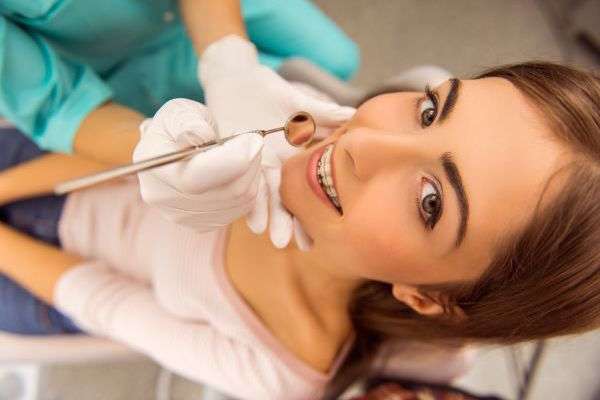 Going in for a dental checkup might not be at the top of your priority list, but it should be. There could be many reasons why you have not been to the dentist’s office for a year or longer. Life can get busy, or you may have fears or anxieties about these visits. Whatever has kept you from making and keeping these appointments, make sure you change your ways and see your dentist regularly.
Going in for a dental checkup might not be at the top of your priority list, but it should be. There could be many reasons why you have not been to the dentist’s office for a year or longer. Life can get busy, or you may have fears or anxieties about these visits. Whatever has kept you from making and keeping these appointments, make sure you change your ways and see your dentist regularly.
The benefits of a dental checkup
Just like a person’s car needs regular maintenance, people’s oral health needs consistent examinations from a trained professional. A dentist has knowledge of the teeth, gums, jaw, and other components of the mouth. A regular visit is an effective way to fight off problems such as tooth decay and gum disease. Checkups are also good opportunities for the dentist to identify problems before they get more serious. Plus, these appointments allow for instruction from the dentist and questions from the patient.
When to get started
Parents should emphasize good oral health from the time their children are born. Once the child starts getting their first tooth, trips to the dentist’s office for a dental checkup can begin. This usually starts around the age of 1, though some children can get teeth as early as a few months after birth. Parents who have put off appointments for their children should get started on wellness checkups immediately.
Frequency of the appointments
Dental professionals agree that patients of all ages should have a dental checkup at least every six months. This regularity helps to establish proper oral health habits. It also allows the dentist to keep on top of emerging abnormalities and conditions such as tooth decay, bite dysfunctions, and jaw pain. Patients who happen to get behind on semiannual visits should catch up by making an appointment right away.
More appointments, as necessary
The twice-a-year rule has some flexibility. Patients who have serious oral health concerns should not wait too long in between visits if issues get worse or if they have intense pain or discomfort. People who have a history of oral health challenges may want to visit the dentist every three or four months instead. The dentist can guide the patient in making the right decision when it comes to the frequency of trips in these situations.
For emergencies
Sometimes, urgent dental matters can arise. These always require immediate attention. Examples of dental emergencies include broken teeth, bleeding gums, jaw pain, and severe tooth pain. During an emergency visit, the dentist may do a partial dental checkup to make sure there are no other serious issues occurring.
Check out what others are saying about our dental services on Yelp: Dental Checkup in Oviedo, FL.
Staying on schedule is good for your health
It is easy to get off track when it comes to health care. A dental checkup is no different. However, if you can make it a point to go to the dentist every six months, you increase your chances of having the oral health you want. You can avoid cavities and other problems, all while enjoying an attractive smile.
Request an appointment or call Everest Dental at 407-588-4388 for an appointment in our Oviedo office.
Related Posts
When was your last dental checkup? Read on to learn more about the importance of regular dental care visits. A dental checkup visit with a dentist is a great way to detect the early signs of any oral health concerns and put together a restorative plan (if necessary) before the concerns worsen. Regular dental checkups…
Dental implants are often referred to by implant dentists as artificial tooth roots. This is because they work in a similar fashion as natural tooth roots. Dental implants hold replacement teeth (i.e. dental crowns) in a stable and strong position.By learning more about dental implants, you can determine if implant dentistry is right for you…
Implant dentistry offers a tooth replacement solution that looks and feels natural. This is due in large part to the implant, which fuses together with the jawbone and serves as the support and root of the replacement tooth. This review discusses the unique benefits of choosing implant dentistry to replace a missing tooth.The most notable…
